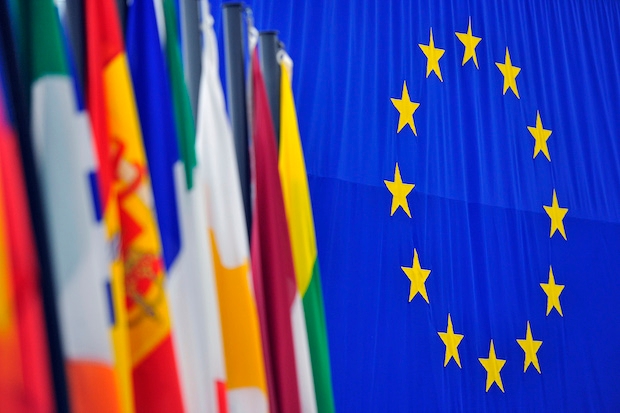David Cameron may have got away with his failure to block Jean-Claude Juncker as president of the European Commission, but that doesn’t mean that his MPs aren’t agitated about the way things are going in Europe. One aspect of last week’s European Council meeting that most people missed was a document setting out what appears to be a significantly reduced role for national parliaments in the EU.
The Strategic Agenda was published as an annex to the European Council conclusions last week. It says:
‘The credibility of the Union depends on its ability to ensure adequate follow-up on decisions and commitments. This requires strong and credible institutions, but will also benefit from closer involvement of national parliaments.’
Those ‘strong and credible institutions’ are the European Parliament, the European Commission, and the European Court of Justice. The role of national parliaments, meanwhile, appears to have been significantly reduced from the first draft of this document, which David Cameron and Herman Van Rompuy discussed in their Downing Street meeting on 23 June. This draft said:
‘A greater place should be given to national parliaments, including by strengthening their means of participating in the debate and making their voice heard in the decision-making process.’
Then a second draft of the Strategic Agenda reportedly watered this down to ‘effective dialogue with national parliaments contributes to the success of European policies in our countries’.
This all sounds technical, but is significant enough to make eurosceptics think that the winds of change are not blowing in Europe at all. If they are blowing, they’re in the opposite direction to David Cameron. In his Bloomberg speech in which he set out his plans for a renegotiation followed by a 2017 referendum, the Prime Minister said:
‘We need to have a bigger and more significant role for national parliaments. There is not, in my view, a single European demos. It is national parliaments, which are, and will remain, the true source of real democratic legitimacy and accountability in the EU.’
European Scrutiny Committee chair Bill Cash describes the Strategic Agenda as an ‘unpicking of the Bloomberg speech in a big way’. It certainly seems to have been unpicked by European leaders from a first draft that, while by no means a mirror image of Cameron’s Bloomberg vision for national parliaments, at least suggested that they would have a role in the decision-making process, rather than a vague suggestion that they could be more closely involved. It does not bode well for the renegotiation, even if Cameron does persuade Jean-Claude Juncker to be his friend.







Comments